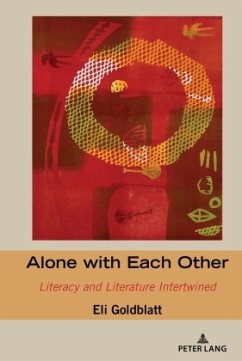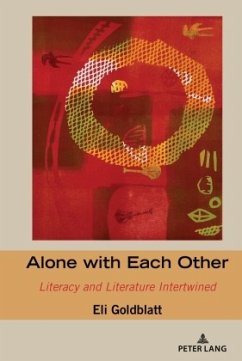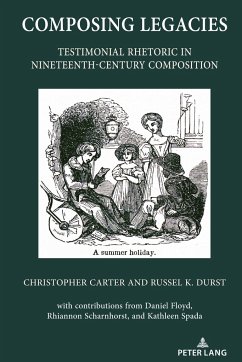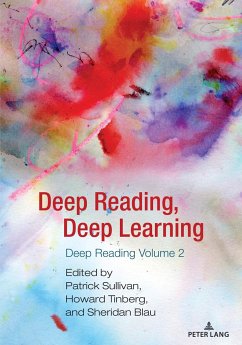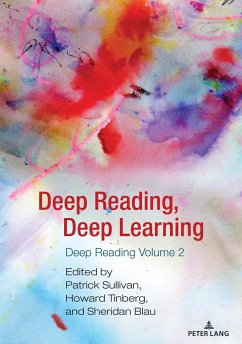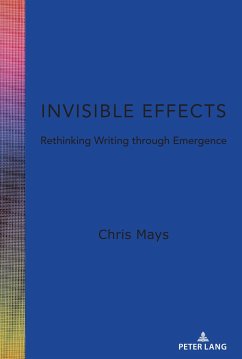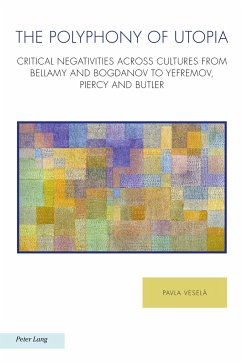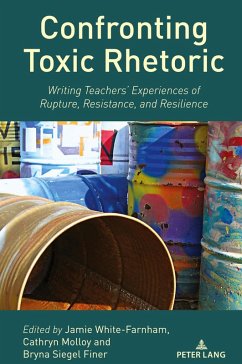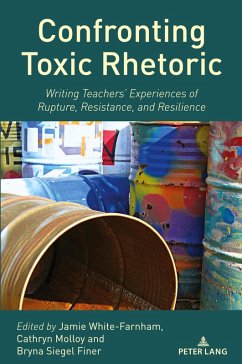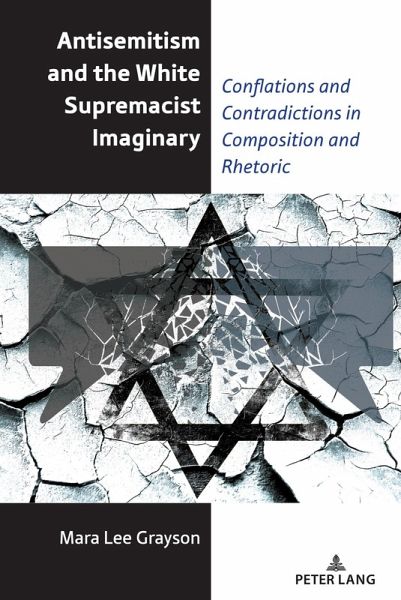
Antisemitism and the White Supremacist Imaginary
Conflations and Contradictions in Composition and Rhetoric
Herausgegeben: Horning, Alice S.
Versandkostenfrei!
Versandfertig in 6-10 Tagen
111,95 €
inkl. MwSt.
Weitere Ausgaben:

PAYBACK Punkte
0 °P sammeln!
In Antisemitism and the White Supremacist Imaginary: Conflations and Contradictions in Composition and Rhetoric, Mara Lee Grayson calls attention to the complicity of academic institutions and the discipline(s) of rhetoric, composition, and writing studies in the simultaneous perpetuation and denial of anti-Jewish racism. Despite the persistence of antisemitism and Christian hegemony in the United States and its academic institutions, and despite a growing body of antiracist and anti-oppressive scholarship, antisemitism remains largely unaddressed in disciplinary scholarship, curricula, and pe...
In Antisemitism and the White Supremacist Imaginary: Conflations and Contradictions in Composition and Rhetoric, Mara Lee Grayson calls attention to the complicity of academic institutions and the discipline(s) of rhetoric, composition, and writing studies in the simultaneous perpetuation and denial of anti-Jewish racism. Despite the persistence of antisemitism and Christian hegemony in the United States and its academic institutions, and despite a growing body of antiracist and anti-oppressive scholarship, antisemitism remains largely unaddressed in disciplinary scholarship, curricula, and pedagogy. This book begins to fill that gap by exploring how the rhetoric through which Jewish identity is conceptualized and weaponized by the white supremacist imaginary essentializes Jewish identities and obscures the racist aims and character of antisemitism. Drawing upon rhetorical analysis, personal narrative, and original phenomenological research, Grayson highlights how deeply embedded antisemitic ideologies impact the lived experiences of Jewish teachers, students, and scholars, and perpetuate white supremacy. This book illuminates the experiential, rhetorical, historical, political, and racial dynamics of antisemitism, exposes the limitations of existing discourses of whiteness and (anti)racism, and gestures toward a future in which, through more nuanced and productive discourse, we can better support Jewish educators and students and better engage Jewish members of the discipline as accomplices in antiracism.
"I take this book personally. Grayson's theoretical framework, historical overview, personal anecdotes, and phenomenological research locate antisemitism nestled in the heart of the white supremacist imaginary. I felt such sadness, anger, and pain reading this book-recognizing myself as a Jew in its stark reflection-and yet her words also charge me, explicitly in my Jewishness, with the urgent need to join others in imagininga more just world through cooperative action and frank dialogue. It's a powerful and vibrant contribution to our field."
-Eli Goldblatt, Co-Author, with David Jolliffe, of Literacy as Conversation: Learning Networks in Urban and Rural Communities
"In this timely and important monograph, Dr. Grayson adroitly explains the impact of antisemitism not only for rhetoric, composition, and writing scholars and students but also our contemporary moment. In lucid and engaging prose, she unpacks thousands of years of history and tropes, making this book a must-read for anyone engaged in antiracist work."
-Janice W. Fernheimer, Zantker Professor of Jewish Studies, Professor of Writing, Rhetoric, and Digital Studies, University of Kentucky
"I take this book personally. Grayson's theoretical framework, historical overview, personal anecdotes, and phenomenological research locate antisemitism nestled in the heart of the white supremacist imaginary. I felt such sadness, anger, and pain reading this book-recognizing myself as a Jew in its stark reflection-and yet her words also charge me, explicitly in my Jewishness, with the urgent need to join others in imagininga more just world through cooperative action and frank dialogue. It's a powerful and vibrant contribution to our field."
-Eli Goldblatt, Co-Author, with David Jolliffe, of Literacy as Conversation: Learning Networks in Urban and Rural Communities
"In this timely and important monograph, Dr. Grayson adroitly explains the impact of antisemitism not only for rhetoric, composition, and writing scholars and students but also our contemporary moment. In lucid and engaging prose, she unpacks thousands of years of history and tropes, making this book a must-read for anyone engaged in antiracist work."
-Janice W. Fernheimer, Zantker Professor of Jewish Studies, Professor of Writing, Rhetoric, and Digital Studies, University of Kentucky






